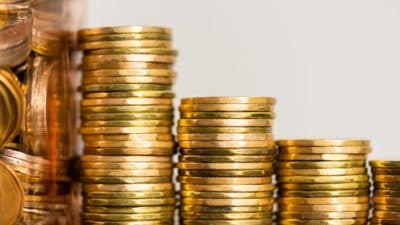Some Wall Street strategists find it odd that energy companies buy their shares when prices are exceedingly high. It would have been more sensible if they did buybacks during the oil slump in 2020. Pioneer Natural Resources Co. CEO Scott Sheffield cited an example: “Not one U.S. company bought their stock in 2020, which is when we should have been buying our stock.”
Despite the 10% drop in oil prices last week, data shows that constituents in the S&P 500 Energy Index and S&P/TSX Composite Energy Index still traded near their 52-week highs. As of March 14, 2022, the TSX’s energy sector is comfortably up 28.38% year to date.
For Laura Lau, senior vice-president and chief investment officer of Brompton Group, raising dividends is a more efficient way to get capital to shareholders. Goldman Sachs recommends buying dividend-paying companies to hedge against inflation.
Bloomberg Intelligence analyst Vincent Piazza supports returning cash to shareholders via dividends, because he believes share-buyback programs won’t improve a company’s financial health.
Enticement to shareholders
An analyst at Desjardins Securities, Justin Bouchard, added that there’s a price at which buybacks cease to be attractive. Bouchard pointed to Canadian Natural Resources (TSX:CNQ)(NYSE:CNQ). The premier energy stock trades at $74.21 per share and outperforms the broader index at +38.84% versus -0.20%).
CNQ is approaching its 52-week high of $79.54. Subsequent to the end of Q4 2021 and until March 2, 2022, the $81.84 billion oil and gas company repurchased approximately $680 million worth of shares. However, management rewarded shareholders throughout 2021 with increased returns.
There were two dividend increases in 2021, representing a combined increase of 38%. The twin hikes also extended CNQ’s dividend-growth streak to 21 consecutive years. In summary, the total direct returns to shareholders in 2021 amounted to $3.8 billion. About 58% ($2.2 billion) went to dividend payments, while 42% ($1.6 were for share repurchases.
Still, Bouchard suggested, “The longer sky-high commodity prices persist, the sooner CNQ will have to re-evaluate its current capital-allocation framework.” If you invest today, the energy stock pays a 3.86% dividend.
Non-dividend paying high-flyer
MEG Energy (TSX:MEG), a smaller firm than Canadian Natural Resources, also benefits from soaring oil prices. The $5.28 billion energy company isn’t a dividend payer, but the stock more than makes up with the price appreciation. At $17.21 per share, current investors are up 47.09%.
Its CEO, Derek Evans, sees tremendous demand for Alberta oil due to the Russia-Ukraine war and the energy crisis in Europe. In 2021, MEG’s revenue increased 88.5% to $4.32 billion versus 2020. Net earnings reached $238 million compared to a $357 net loss a year ago.
MEG’s net cash from operations and free cash flows rose to $690 million (+128%) and $799 million (+191%). Evans said, “We expect to be in a position to initiate our share-buyback program in the second quarter of 2022.” Dividend payment isn’t on the table, as MEG’s debt-reduction program is ongoing.
Company discretion
Income investors would naturally welcome dividend increases anytime. Besides having more cash in their pockets, they hedge against inflation. However, companies have the sole discretion of paying, cutting, or raising dividends.








